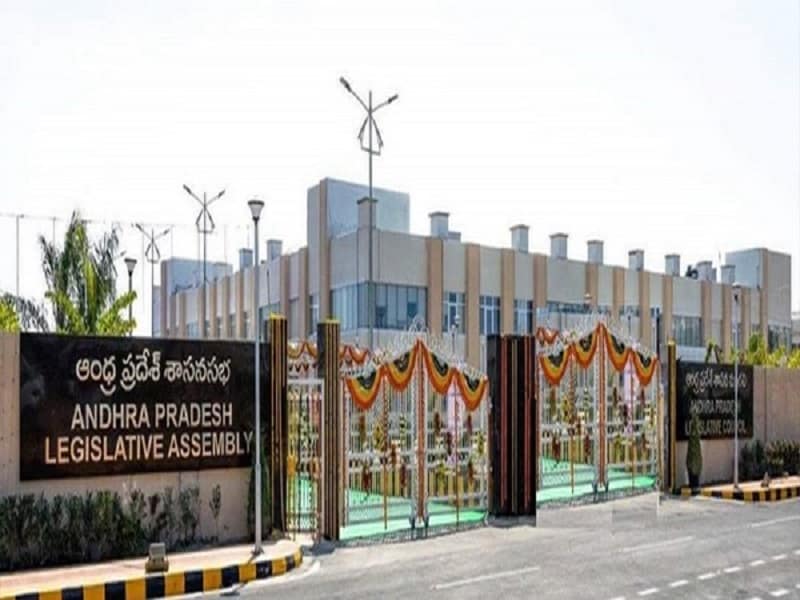Amaravati: A couple of orders passed by the high court have stirred the hornet’s nest, deepening the gulf between legislature and judiciary in Andhra Pradesh.
In the first order the court granted stay on the constitution of a cabinet sub-committee to review the key decisions of the previous TDP government and Special Investigation Team (SIT) to probe the land deals. In the next order the high court slapped a blanket ban on media including social media from reporting on the contents of the first information report (FIR) filed by the Anti-Corruption Bureau (ACB) involving a former Advocate General of the AP and others who include two daughters of the senior-most sitting judge of the Supreme Court.
The court orders sparked a debate in political, legal and media circles on powers and limitations of the legislature vis-à-vis the judiciary. The orders also provided a stuff for discussion on whether some people by virtue of their position and connections with the powers-that- be are provided immunity from the so-called media trial, inquiry and investigation of the probe agencies be scuttled to the advantage of the accused in the case. The judicial orders granting immunity to former Advocate General of the government of Andhra Pradesh Dammalapati Srinivas and others who included two daughters of the senior-most sitting judge of the Supreme Court framed in the ACB’s FIR, from media coverage came in comparison with film actress Rakul Preet Singh who was subjected to media trial in the case of suicide by actor Sushant Singh Rajput. The order intending to gag the media is uncalled for and in contravention of freedom of speech guaranteed under Article 19 of the constitution.
Adverse judgments
The Yuvajana Sramika Rytu Congress Party (YSRC) headed by Y.S. Jaganmohan Reddy won the elections by mainly campaigning against omissions and commissions of the TDP government. Therefore, Jagan’s party contends that it has got people’s mandate to review the policies and programmes of the previous government and that judicial has no role in its mission to realize the people’s mandate.
The Jaganmohan Reddy government which swept to power with a massive mandate early in 2019 in Andhra Pradesh began to raise serious questions over the impartiality of the judiciary after it received a series of adverse judgments on a slew of its decisions. It is estimated that the high court has issued as many as 70 orders negating the key decisions of the government in the last one and a half year. Sacking of the Andhra Pradesh State Election Commissioner N. Ramesh Kumar, introduction of English as a medium of instruction in government schools, challenging the SEC’s decision to defer the elections for the urban and local bodies, shifting of capital out of Amaravati are a few to name which were struck down by the courts.
Armed with the privileges under clause (1) and (2) of the 105 of the Constitution, YSRCP’s floor leader in the Lok Sabha Midhun Reddy emphasised his right to free speech and said his party has no confidence in the judiciary as many of the lawyers who were aligned with the TDP in the past are becoming judges of the high court and the Supreme Court. He even called for radical changes in the selection process for appointment of judges. TDP’s former minister Yanamala Ramakrishnudu countered the YSRC’s argument saying the parties in power with the strength of people’s mandate cannot run the governments at their will. Their actions have to be accountable to the law of the land and stand scrutiny to the court of law, he asserted.
Gag orders
It is not first time the high court has given gag orders. After the murder of Y.S. Vivekananda Reddy, CM Jagan’s uncle, the high court in March, 2018 issued an order asking the police to abstain from divulging inputs of investigation to the media. Jagan moved the court seeking gag orders accusing then ruling TDP of trying to influence the elections in its favour by implicating his family members in the murder case. In September 2011 the high court issued a similar order restraining the ABN TV news channel from telecasting defamatory news against YSRC spokesman Ambati Rambabu in an alleged sexual harassment case. Ram Babu moved the court alleging that the channel backed by the TDP was out to tarnish his image.

